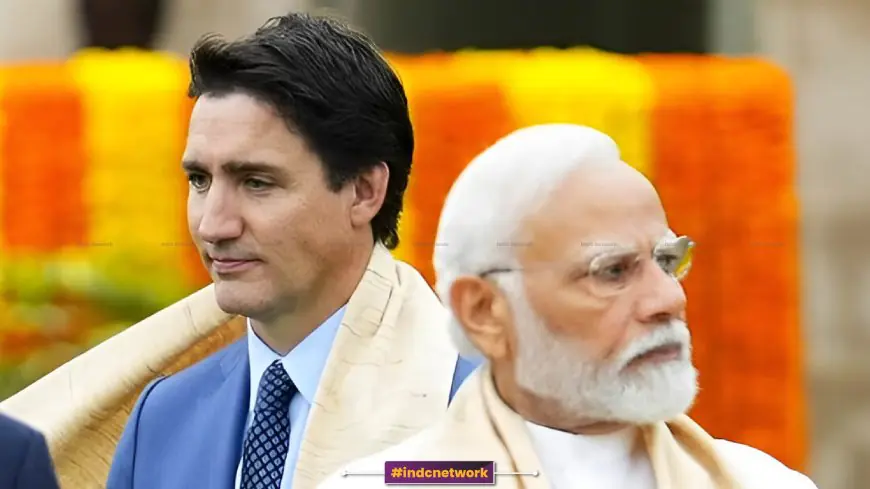India-Canada Diplomatic Clash: Unfolding Mystery of a Khalistani Leader's Assassination and Alleged Spy Networks
India and Canada are embroiled in a diplomatic conflict following the assassination of Khalistani separatist leader Hardeep Singh Nijjar in British Columbia, Canada. The controversy erupted when Canadian Prime Minister Justin Trudeau accused Indian agents of involvement in the killing. Both countries have expelled diplomats in retaliation, further straining their ties. While Canada insists on evidence linking Indian officials to the assassination, India has dismissed these claims, accusing Canada of harboring Khalistani extremists. As international pressure mounts, the situation remains delicate, with potential global ramifications.

INDC Network : World : The diplomatic spat between India and Canada took a serious turn in September 2023, when Canadian Prime Minister Justin Trudeau accused India of being involved in the assassination of Hardeep Singh Nijjar, a pro-Khalistan terrorist. Nijjar was shot dead on June 18, 2023, outside a Sikh temple in British Columbia, Canada, by masked gunmen. India had designated Nijjar a terrorist in 2020 due to his alleged role in pro-Khalistan separatist activities.
Trudeau claimed to possess intelligence suggesting that Indian agents were complicit in Nijjar’s murder, causing a massive uproar. The accusations sparked immediate diplomatic action, with both countries expelling six of each other's diplomats in retaliation. While India dismissed Trudeau's claims as "absurd" and politically motivated, Ottawa stood firm, calling for a thorough investigation into the matter.
Adding fuel to the fire, the Royal Canadian Mounted Police (RCMP) and Trudeau suggested that Indian diplomats in Canada were involved in espionage activities, allegedly gathering information on Sikh separatists and passing it on to organized crime groups, including the infamous Lawrence Bishnoi gang.
India, on the other hand, has consistently criticized Trudeau’s government for its lenient approach toward pro-Khalistan groups. New Delhi has long expressed concerns over the activities of Khalistani sympathizers on Canadian soil, accusing Ottawa of turning a blind eye to their violent rhetoric and actions.
Further escalating the crisis, Canada named Indian High Commissioner Sanjay Kumar Verma as a person of interest in the investigation, while India countered by implicating Canadian border official Sandeep Singh Sidhu in terrorism-related activities linked to Pakistan-based Khalistani militants like Lakhbir Singh Rode.
As tensions grew, the international community, including the United States, urged India to take the allegations seriously, while experts speculated that the diplomatic fallout might not have immediate effects on visa policies but could slow down the overall process.
The unfolding crisis has not only strained India-Canada relations but also raised concerns about the global impact of this diplomatic conflict, given both countries' strategic ties with the West.









